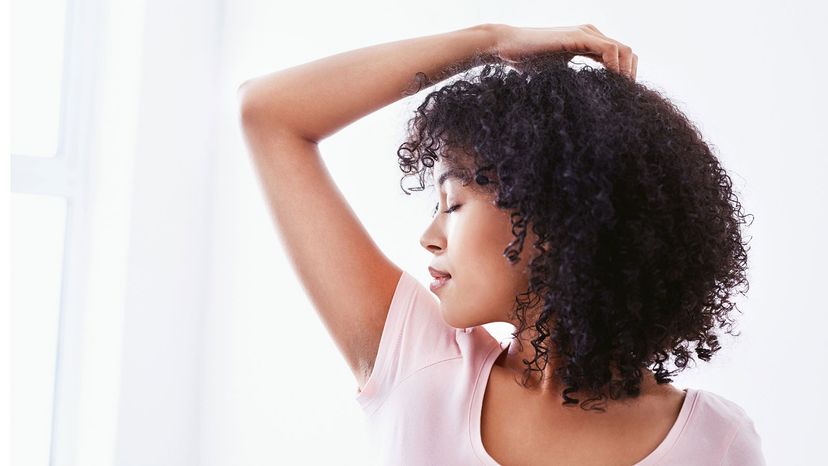 “The best time to apply antiperspirant is at night. LaylaBird/Getty Images
“The best time to apply antiperspirant is at night. LaylaBird/Getty Images
If you apply your antiperspirant after your morning shower, guess what? You’re doing it all wrong. Nighttime is really the right time to do this.
"Antiperspirants are designed to plug up the sweat glands to block the release of sweat," emails Dr. Marisa K. Garshick, dermatologist and chief medical correspondent for antiperspirant company Certain Dri. The company conducted an online survey in conjunction with Harris Poll and found that 56 percent of Americans didn’t know they should apply antiperspirant at night rather than in the morning. "At nighttime, the sweat glands are not active or filled with sweat, which allows the sweat ducts to absorb the antiperspirant ingredient, aluminum salts, more easily, leading to improved efficacy and reduced irritation."
Indeed, the British Journal of Dermatology noted in 2012 that "application at night allows diffusion to occur during a period of falling or low sweat rates, thereby improving conditions for the active agent to enter the duct. One published study has shown nighttime application to improve efficacy of a commercial soft-solid product from 56% to 73% sweat reduction." And the International Hyperhidrosis Society (hyperhidrosis is the medical term for excessive sweating), which recommends applying antiperspirant morning and evening, adds, "If you are only going to apply once, then make it before you go to bed."
If you shower at night, you’ll want to steer clear of putting on antiperspirant immediately after stepping out of the tub. "If the skin is wet when antiperspirant is applied, not only can it lessen the efficacy, it can also lead to redness, irritation and sensitivity, so it is best to ensure the area is completely dry prior to applying," Garshick explains.
If you aren’t so sure that your armpits are totally dry, she recommends using a blow-dryer on a cool setting before antiperspirant application. This should help encourage absorption and also minimize irritation, she says.
Now That’s Important
A lot of people refer to antiperspirant and deodorant interchangeably, but they’re actually two different things. "Deodorants do not eliminate sweat," Garshick says. "They work to eliminate the smell that is associated with sweat." Fortunately for people who suffer from armpit-based sweat and odor, many products offer combination coverage. If the product is just a deodorant, it doesn’t matter when you apply it.



























